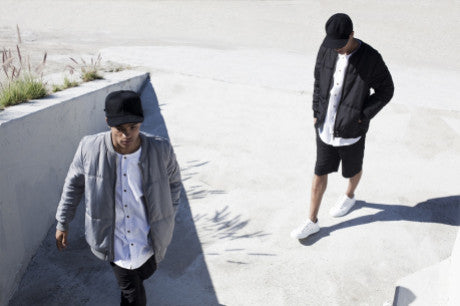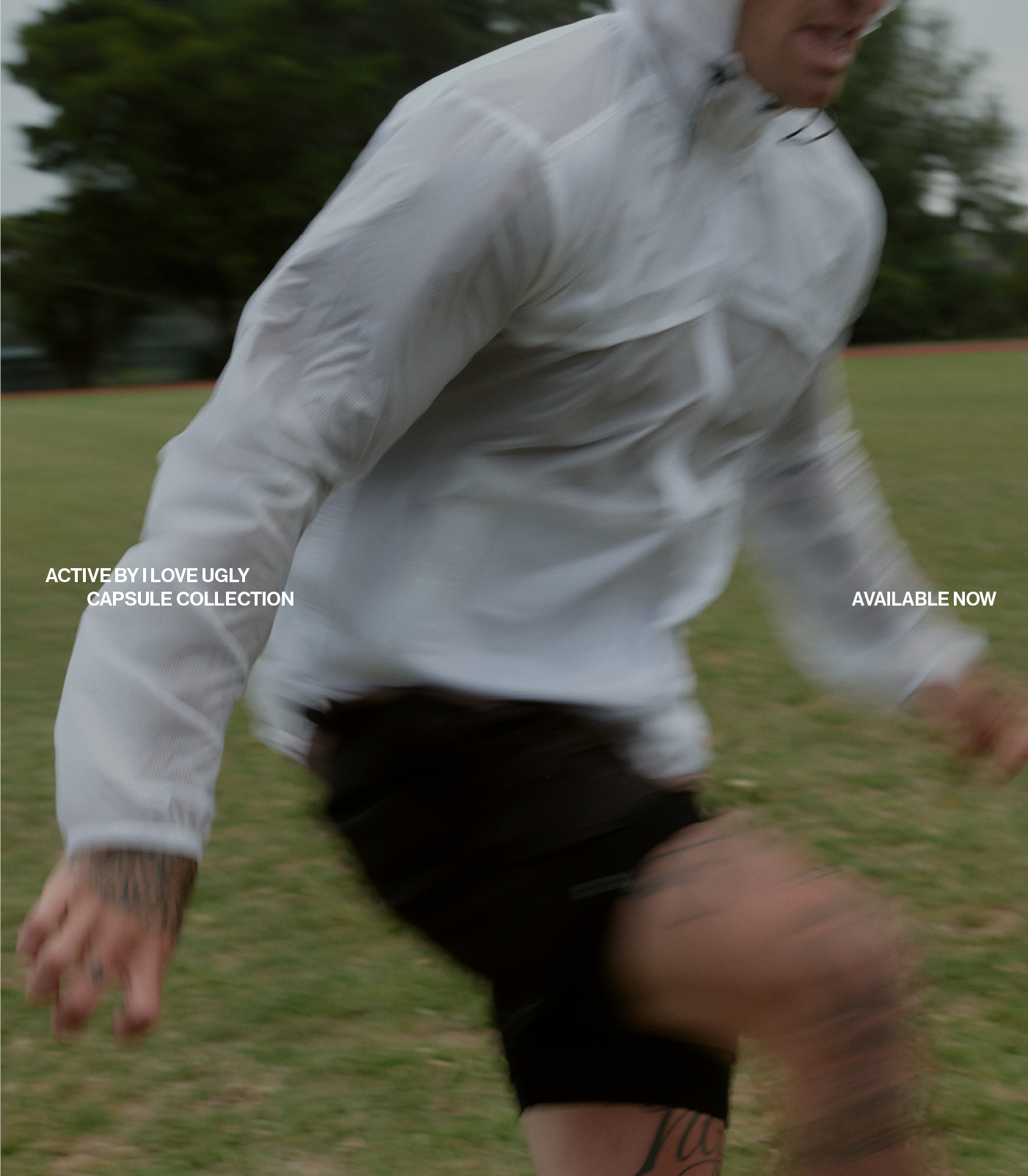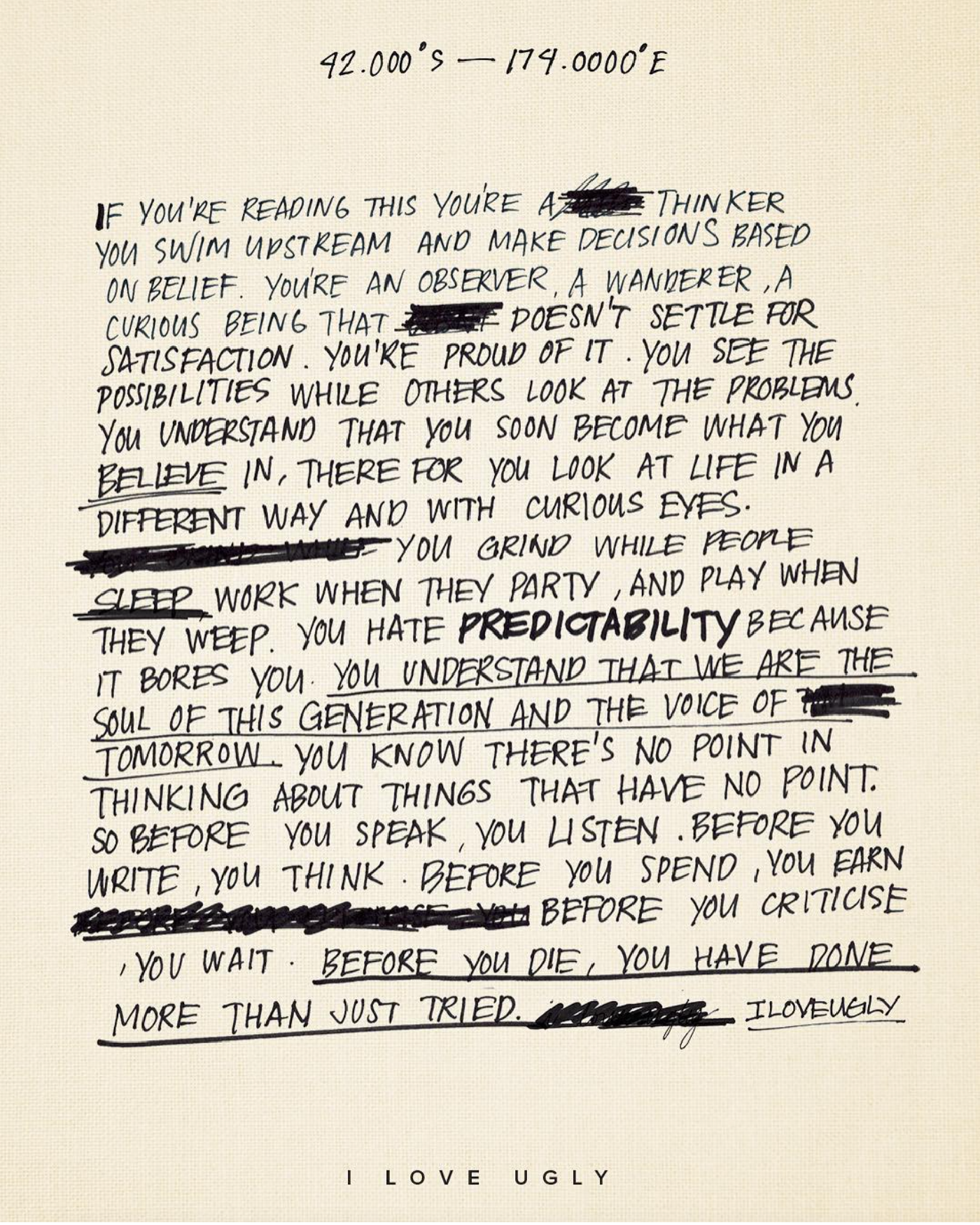
How to start a fashion brand (the real non-bullshit way)
We are constantly asked this question, so have taken the time to write down a quick, but honest look into how to start and run a fashion brand.
This is complete unfiltered honesty that we have personally learnt the hard way. The worst thing you can do is go into fashion thinking it's easy, and a quick way to make some money. We want to give you an honest insight into where we’ve come from, and to show you we’re still learning.
1. Do something that excites you.
Be honest about who you are and do something that will keep you going when the going gets tough. Fashion is like a party, with a deathly hangover in the morning.
Fashion is grueling, cutthroat and hard! You have to really be prepared to be involved in all the ins and outs of running a business - if you just want to be creative, maybe become a painter.
The industry works on cycles - and they don't end - ever. You will always be smack in the middle of 4 cycles at any given time and they all require different thinking. Generally one cycle is a year, 3 months of design and sampling, 3 months of selling to retailers, 4 months of production and shipping and 2 months of marketing the range once its out. At any given time you will have four ranges going and they’ll all be at different stages. Designing one, sampling or delivering another, all while you are working hard to market the product that is currently in store.
Fashion is about creativity but it’s also about business, it takes real tenacity to make it all work and get product delivered to stores. When you think you have got it all right - forget it - you have no doubt changed your mind and decided you hate what you have just done, rip it all out and start again last minute to make sure what you give out to the public is something you are very proud of.
We go through that process nearly every time. It makes for an interesting, but very challenging, fast paced environment.
2. Create a marketing strategy.
Ask yourself these key questions: Who are you going to be targeting? What makes your stuff better or different to everybody else? This isn't something they touch on in fashion school, which we find fuckin stupid. What will you focus on that is special and unique? How are you going to promote your products to your customer in a way they haven’t seen it before? How are you even going to get a customer without copying your main sources of influence? Are you going to price high or low? What is going to be your route to market (retail, online or wholesale? - maybe a mix of all three, if so - when and how?)?
3. Identify a niche.
Most fashion brands have a speciality or a flagship product that really defines them, whether it be the Supreme box logo tee or a handbag for Louis Vuitton. There is a reason why these products have been so successful - it’s because they were different and resonated with a customer base in a way they hadn’t seen before. Ask yourself - do I already have the ability to buy the product I am creating? If the answer is yes - then why are you making it (I think its time to go back to the drawing board homie…) If the answer is no - maybe you are on to something, but is there a reason no one else makes that product? You see what we mean about fashion being tough.
4. Drive, determination and dedication.
We are not kidding here. If you’re going into this half-hearted, you're already dead before you’ve started.
5. Register your trademark.
Register it in the country you will be manufacturing as well as the countries you will be selling in. We fucked this up, and it isn’t pretty. You never can do this too early - but it is an expensive process so make sure you budget for it before you sign up to the legal fees too.
6. Do things because they are honest and true
Don't do it because you think thats the way things should be done. Follow your instinct before you follow the rule book. Remember that rules are there to be broken.
7. Define your brand principles.
Who is going to talk about you and why? What will people say about your brand behind closed doors? What are people going to remember you for? Why should anyone care? What does the brand stand for? Who are you? and also make sure your whole team is on the same page with these ideals as one weak link in this chain can cause a breakdown of communication and having the ability to convey a consistent brand message throughout all touch points of your company.
8. Come up with a name
Something that is catchy, interesting and maybe a little bit crazy. (Remember to make sure it’s trademarkable).
9. Find a supplier.
To be honest - a good starting point is Google (simply google ‘clothing manufacturer) or a friend in the fashion industry that might be able to point you in the right direction. Lots of brands can be quite protective over their suppliers and rightly so. This might be a quite hard step and take some time, but be persistent and start where you can. Travelling to where you want to produce your products first off is definitely worth the investment. If that is going to be in Asia - go to Asia and talk to some people - if it’s going to be in the US, travel to meet the suppliers there. Remember working via email is exactly that. People will treat you like a robot and we guarantee the result will be subpar.
10. Find a business partner.
A really good dynamic in any fashion business is a right brain (creative) and a business brain. Any body that tells you otherwise is lying. The most successful business relationships are generally not both designers. As you can see there is so many different layers in this game, it’s near impossible to design good clothes if you have to worry about a whole lot of other stuff. Not to say that all creative duos won’t work - but you really need a solid business mind in any fashion business or you will not be successful.
11. If you don't have the cash to get started yourself, you might need some investment.
You’ll either need to find a really good supplier that will give you terms or you will need someone to invest some money to get the business going. Friends and family are the best first port of call, but to pitch for investment you to know what the hell you're talking about. If you borrow off family, you need to be prepared to potentially destroy the relationship if you muck up.
12. Make a financial plan.
One of the most important parts of any business including a fashion brand is a robust financial forecast that can accurately predict your cash position and also is dynamic enough that you can update it biweekly or so as things progress. Cash is the breath of every business, if you don’t have it - you choke and die. (something we have been on the brink of plenty of times).
13. Complacency is the killer of all fashion brands.
Never stop moving, never stop thinking, never feel like you have done enough to take you to the next level. Fashion is the fastest moving industry in the world, you blink and it’s gone, it’s more volatile than a blindfolded drunk walking a tightrope . Make sure you are constantly researching, reading, traveling, doing your homework in the current industry, making sure you are critiquing and analysing everything you are doing, and then better that.
14. Get feedback, honest feedback.
Ask people straight up if they would buy your clothes. You quickly find out where you are going wrong. As you are starting up you are the threat to the incumbents, but never lose that start up mentality. Always remember that if you imagine less, less will be what you undoubtedly deserve.
This is complete unfiltered honesty that we have personally learnt the hard way. The worst thing you can do is go into fashion thinking it's easy, and a quick way to make some money. We want to give you an honest insight into where we’ve come from, and to show you we’re still learning.
1. Do something that excites you.
Be honest about who you are and do something that will keep you going when the going gets tough. Fashion is like a party, with a deathly hangover in the morning.
Fashion is grueling, cutthroat and hard! You have to really be prepared to be involved in all the ins and outs of running a business - if you just want to be creative, maybe become a painter.
The industry works on cycles - and they don't end - ever. You will always be smack in the middle of 4 cycles at any given time and they all require different thinking. Generally one cycle is a year, 3 months of design and sampling, 3 months of selling to retailers, 4 months of production and shipping and 2 months of marketing the range once its out. At any given time you will have four ranges going and they’ll all be at different stages. Designing one, sampling or delivering another, all while you are working hard to market the product that is currently in store.
Fashion is about creativity but it’s also about business, it takes real tenacity to make it all work and get product delivered to stores. When you think you have got it all right - forget it - you have no doubt changed your mind and decided you hate what you have just done, rip it all out and start again last minute to make sure what you give out to the public is something you are very proud of.
We go through that process nearly every time. It makes for an interesting, but very challenging, fast paced environment.
2. Create a marketing strategy.
Ask yourself these key questions: Who are you going to be targeting? What makes your stuff better or different to everybody else? This isn't something they touch on in fashion school, which we find fuckin stupid. What will you focus on that is special and unique? How are you going to promote your products to your customer in a way they haven’t seen it before? How are you even going to get a customer without copying your main sources of influence? Are you going to price high or low? What is going to be your route to market (retail, online or wholesale? - maybe a mix of all three, if so - when and how?)?
3. Identify a niche.
Most fashion brands have a speciality or a flagship product that really defines them, whether it be the Supreme box logo tee or a handbag for Louis Vuitton. There is a reason why these products have been so successful - it’s because they were different and resonated with a customer base in a way they hadn’t seen before. Ask yourself - do I already have the ability to buy the product I am creating? If the answer is yes - then why are you making it (I think its time to go back to the drawing board homie…) If the answer is no - maybe you are on to something, but is there a reason no one else makes that product? You see what we mean about fashion being tough.
4. Drive, determination and dedication.
We are not kidding here. If you’re going into this half-hearted, you're already dead before you’ve started.
5. Register your trademark.
Register it in the country you will be manufacturing as well as the countries you will be selling in. We fucked this up, and it isn’t pretty. You never can do this too early - but it is an expensive process so make sure you budget for it before you sign up to the legal fees too.
6. Do things because they are honest and true
Don't do it because you think thats the way things should be done. Follow your instinct before you follow the rule book. Remember that rules are there to be broken.
7. Define your brand principles.
Who is going to talk about you and why? What will people say about your brand behind closed doors? What are people going to remember you for? Why should anyone care? What does the brand stand for? Who are you? and also make sure your whole team is on the same page with these ideals as one weak link in this chain can cause a breakdown of communication and having the ability to convey a consistent brand message throughout all touch points of your company.
8. Come up with a name
Something that is catchy, interesting and maybe a little bit crazy. (Remember to make sure it’s trademarkable).
9. Find a supplier.
To be honest - a good starting point is Google (simply google ‘clothing manufacturer) or a friend in the fashion industry that might be able to point you in the right direction. Lots of brands can be quite protective over their suppliers and rightly so. This might be a quite hard step and take some time, but be persistent and start where you can. Travelling to where you want to produce your products first off is definitely worth the investment. If that is going to be in Asia - go to Asia and talk to some people - if it’s going to be in the US, travel to meet the suppliers there. Remember working via email is exactly that. People will treat you like a robot and we guarantee the result will be subpar.
10. Find a business partner.
A really good dynamic in any fashion business is a right brain (creative) and a business brain. Any body that tells you otherwise is lying. The most successful business relationships are generally not both designers. As you can see there is so many different layers in this game, it’s near impossible to design good clothes if you have to worry about a whole lot of other stuff. Not to say that all creative duos won’t work - but you really need a solid business mind in any fashion business or you will not be successful.
11. If you don't have the cash to get started yourself, you might need some investment.
You’ll either need to find a really good supplier that will give you terms or you will need someone to invest some money to get the business going. Friends and family are the best first port of call, but to pitch for investment you to know what the hell you're talking about. If you borrow off family, you need to be prepared to potentially destroy the relationship if you muck up.
12. Make a financial plan.
One of the most important parts of any business including a fashion brand is a robust financial forecast that can accurately predict your cash position and also is dynamic enough that you can update it biweekly or so as things progress. Cash is the breath of every business, if you don’t have it - you choke and die. (something we have been on the brink of plenty of times).
13. Complacency is the killer of all fashion brands.
Never stop moving, never stop thinking, never feel like you have done enough to take you to the next level. Fashion is the fastest moving industry in the world, you blink and it’s gone, it’s more volatile than a blindfolded drunk walking a tightrope . Make sure you are constantly researching, reading, traveling, doing your homework in the current industry, making sure you are critiquing and analysing everything you are doing, and then better that.
14. Get feedback, honest feedback.
Ask people straight up if they would buy your clothes. You quickly find out where you are going wrong. As you are starting up you are the threat to the incumbents, but never lose that start up mentality. Always remember that if you imagine less, less will be what you undoubtedly deserve.



Leave a comment
This site is protected by hCaptcha and the hCaptcha Privacy Policy and Terms of Service apply.